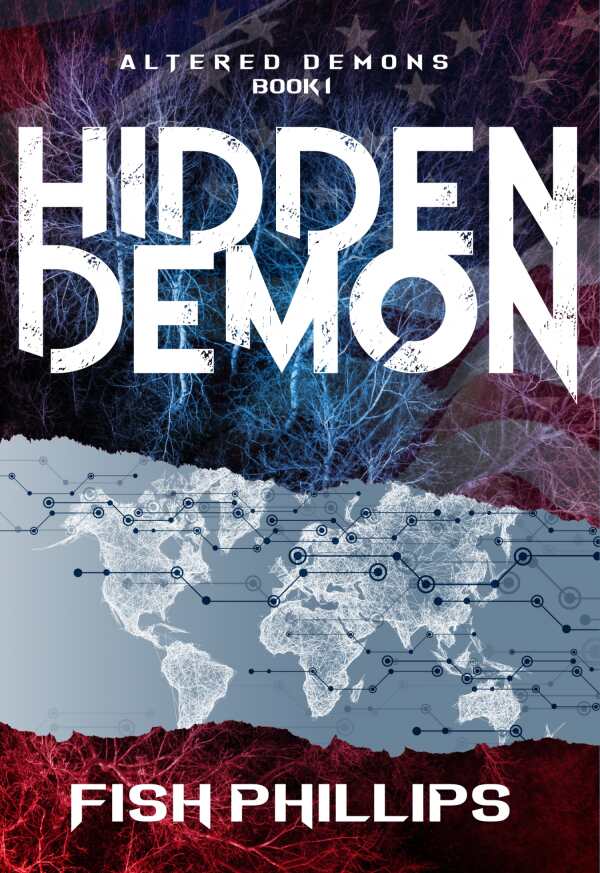Hidden Demon
The thriller Hidden Demon weaves climate change commentary into its story of a mysterious assassin.
In Fish Phillips’s thriller Hidden Demon, outcast government agents hunt down an assassin whose track leads to a climate crisis conspiracy.
Dee’s world is turned upside down when a mission goes bad, leaving her with a new bullet wound and without her old job in the Secret Service. When a beast-like creature starts targeting political figures with environmental agendas, the president asks her to take on a clandestine mission to protect a climate-focused senator from the danger. Dee and her partner Ko need all of their specialized skill sets to find the killer—and the master who controls it.
Dee is focused, as is evident in all of her thoughts, conversations, and problem-solving behavior. Though she works smart and hard, she also struggles psychologically because of her injury and job loss. An artificial intelligence implant that provides her with perspective and support.
Dee’s experiences within the tough military culture, which is still dominated by men, left her a sense that there is little room for either mistakes or mental health consideration. She and her colleagues are more proficient in fighting and weapons than emotions, and scenes showing this punctuate the narrative, particularly when Dee and Ko battle shifting sets of enemies. Ko’s Japanese heritage is highlighted in his use of a katana, a specialized sword, and via folklore he shares with Dee and that is shared in distinct chapters. One of his tales mirrors their struggle, reinforcing elements of the mystery around the beast.
Descriptions of the primal assassin are vague at first, limited to references to urban legends. Gruesome physical details of its attacks contribute to a sense of danger. As Dee and Ko investigate the killings, a host of characters emerge with uncertain loyalties, keeping the true villains hidden but hinted at. Themes of environmentalism and greed emerge as businessmen work to hold on to their powerful political and financial positions despite the fact that the climate is on the brink of disaster.
The not-too-distant future is viewed most from Japanese and US vantages. Its government structures and corrupt politicians are familiar. Technological advances draw it forward in time, as with internal systems that administer medication when needed, drone weaponry, and anti-fungal drugs that result in empathetic superpowers with animals. Some of these features raise unanswered questions, though. Further, the romantic element of the book is underdeveloped, used most to suggest future developments.
With a resolution marked by righteous anger, the thriller Hidden Demon weaves climate change commentary into its story of a mysterious assassin.
Reviewed by
Delia Stanley
Disclosure: This article is not an endorsement, but a review. The publisher of this book provided free copies of the book and paid a small fee to have their book reviewed by a professional reviewer. Foreword Reviews and Clarion Reviews make no guarantee that the publisher will receive a positive review. Foreword Magazine, Inc. is disclosing this in accordance with the Federal Trade Commission’s 16 CFR, Part 255.

